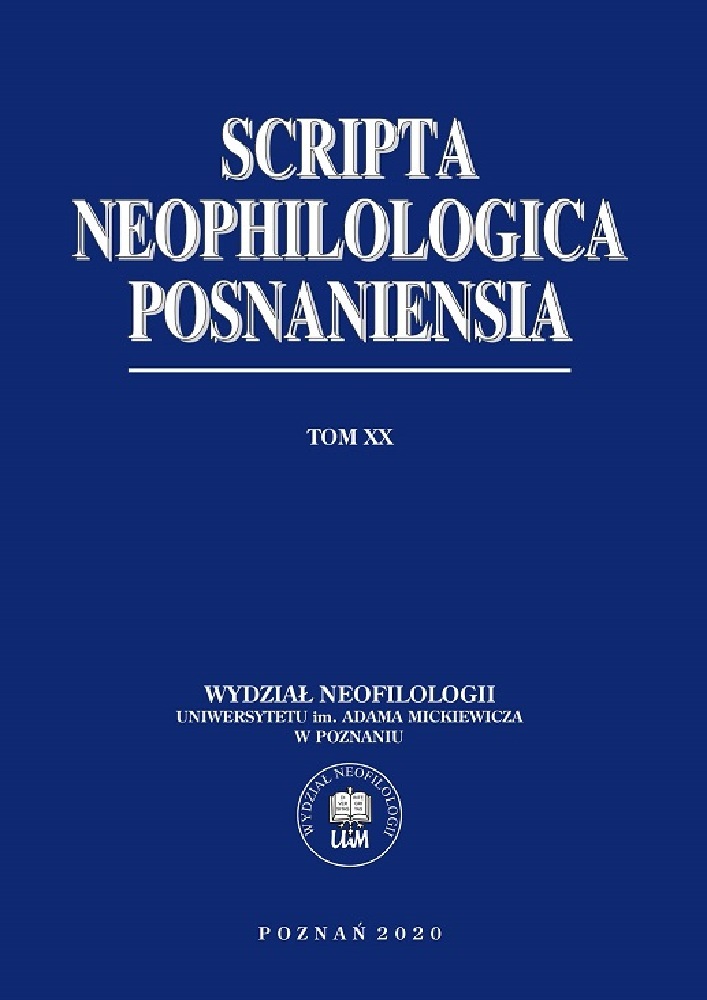Abstrakt
Anthropolinguistics is one the most recent theoretical and practical perspectives developed within the science of linguistics. As such, it focus on the central question of the evolution of human thinking and its reflection in language. It is proposed that on the basis of evolutionary processes, it is possible to put forth a view according to which any further development of humanity depends on the presence and steady development of specialist lexicon. It secures the advancement of humanity in science, industry and culture.
Bibliografia
Baron, N.S. 1992. Growing up with language. How children learn to talk. Reading, Mass.: Addison-Wesley.
Beaugrande, R. de i W. Dressler. 1981. Introduction to text linguistics. London: Routledge.
Bloom, L., Lifter, K. i J. Broughton. 1985. “The convergence of early cognition and language in the second year of life: problems in conceptualization and measurement”. W zbiorze: Barrett, M. (red.). Single-word speech. New York: John Wiley and Sons. 149–171.
Braine, M.D.S. 1963. “The ontogeny of English phrase structure: the first phase”. Language 39. 1–13.
Brooks, R.L. i J.E. Obrzut. 1981. “Brain lateralization: implications for infant stimulation and development”. Young Children. 36.3. 9–16.
Dębski, J. 2005. Podstawy poznania naukowego. Białystok: Wyższa Szkoła Finansów i Zarządzania w Białymstoku. Encyclopedia Britannica. 2004. Supplements.
Fisiak, J. 2000. An outline history of English. Volume One: External history. Poznań: Wydawnictwo Poznańskie.
Fromkin, V., Rodman, R i. N. Hyams. 1993. An introduction to language. Boston: Wadsworth.
Griniev-Griniewicz, S. 1996. “Terminology and nomenclature in Russian”. Terminology Science and Research. 5.1. 10–14.
Griniev-Griniewicz, S. 2004. O współczesnym podejściu do lingwistyki antropologicznej // Polszczyzna Mazowsza i Podlasia. Część VIII, Łomża.
Griniev-Griniewicz, S. i S. Raube. 2003. „Lingwistyka antropologiczna a problem poznania”. Pomosty 2. 13.
Griniew-Griniewicz, S. i S. Raube. 2003. „Lingwistyka antropologiczna a problem poznani”. Pomosty. W kręgu Nauki i Biznesu 2.13.
Griniev-Griniewicz, S., Zaniewski J., Skopiuk T. i E. Sorokina. 2009. Antropolingwistyka (nowa nauka XXI wieku). Białystok: WSFiZ.
Heinz, A. 1978. Dzieje językoznawstwa w zarysie. Warszawa: PWN.
Kuhn, T. 1962/1977. The structure of scientific revolutions. Chicago: The University of Chicago Press.
Lavrova, A. (red.). 2004. Language and culture. Establishing foundations for anthropological linguistics. Białystok: WSFiZ. 153–160.
Leitchik, V. 2004. “Les relations entre culture et language: functions communes”. W zbiorze: Lavrova, A. (red.). 283–294.
Nosowicz, J. 2004. “Terminologizacja a szybkość zmian językowych”. W zbiorze: Lavrova, A. (red.). 97–105.
Oxford English Dictionary. 2nd ed. Oxford: Oxford University Press.
Parker, F. i K. Riley. 1994.2005. Linguistics for non-linguists: a primer with exercises. Boston: Allyn and Bacon.
